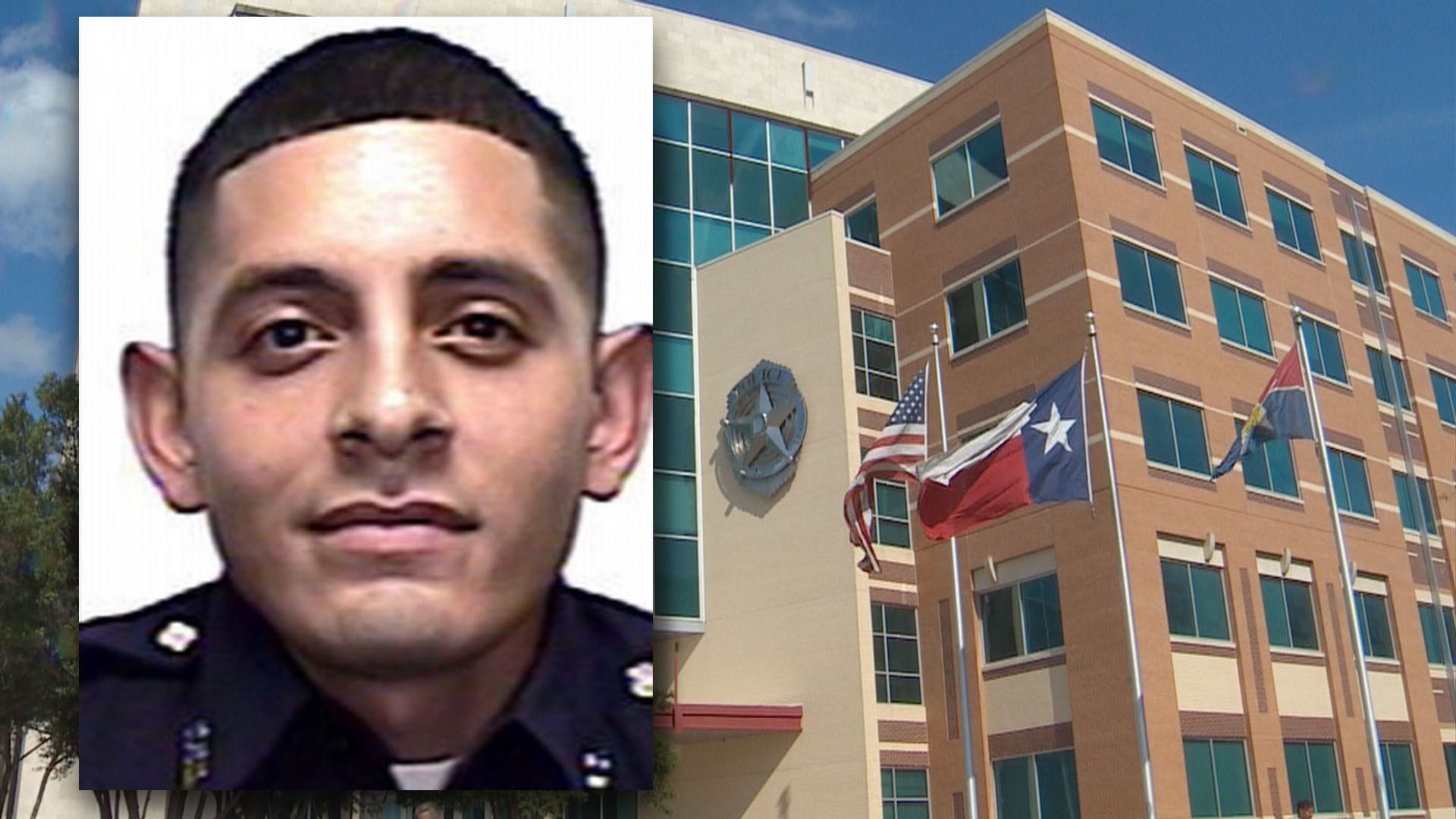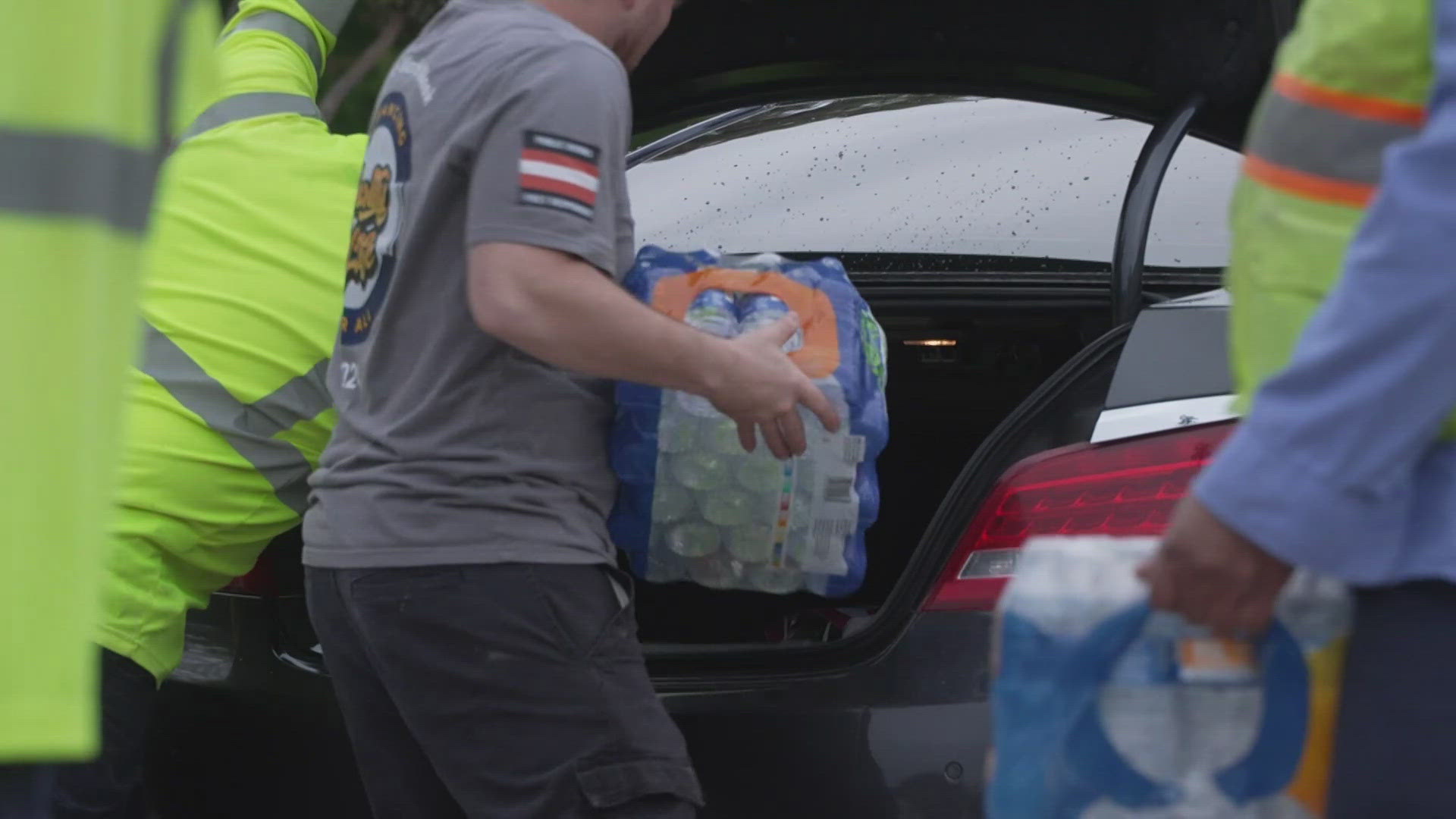DALLAS — A fired Dallas police officer who confessed to giving information about undercover vice stings to a convicted prostitute is now trying to get his job back.
Daniel Razo, 30, has filed an appeal and is seeking reinstatement.
Police Chief David Brown fired Razo in April after internal investigators concluded he associated with a "person of immoral character" and provided her with sensitive information.
The woman provided investigators with the dates of vice operations and accurate descriptions of undercover vehicles and undercover officers that she said Razo had given her. She said he paid for sex at first, and that they eventually became boyfriend and girlfriend, dating for about two years.
When questioned by internal affairs investigators, Razo confessed that he had given the woman information about the dates of vice operations. He denied that he had given her information beyond that.
Razo denied paying for sex. He said that they'd only had a casual fling and had sex a few times.
"I apologize for my actions," he told internal investigators earlier this year. "I mean for her, for me talking to her should never have happened. I never should have texted her. I never should have called or anything."
![Fired police officer seeks reinstatement[ID=30442089] ID=30442089](http://wfaa-download.edgesuite.net/video/30442089/30442089_Still.jpg) Razo's statements to internal affairs investigators — which are compelled — legally could not be used against him for criminal prosecution. He did not made the same admissions during the public integrity process, so investigators concluded they didn't have enough evidence to charge him with a crime.
Razo's statements to internal affairs investigators — which are compelled — legally could not be used against him for criminal prosecution. He did not made the same admissions during the public integrity process, so investigators concluded they didn't have enough evidence to charge him with a crime.
News 8 shared the recordings with Armando Perez, a retired homicide detective. Perez has worked undercover vice. He also worked undercover in the 1980s posing as an undocumented immigrant to catch three police officers who were stealing during traffic stops.
"[Daniel Razo] put a lot of people in danger; not only police officers, but the public in general, because when police officers are doing undercover work they want to make sure that nobody knows who they are," said Perez, who now runs Perez Private Investigations based in Mesquite.
Perez said working vice operations can be among the most dangerous work because prostitutes often carry guns, knives and other weapons.
"It's very dangerous to do undercover work, and when you end up having a police officer providing information like this to the bad guys, it's pretty serious," Perez said. "There's no way I would want to work with someone like that."
An investigation into Razo's conduct was launched after the convicted prostitute came forward in September 2014, telling the department that Razo had been giving her information about undercover vice operations.
Razo, who was hired in 2009, met the woman when he responded at a gas station at 12th Street and Marsalis Avenue in 2012. Records indicate that he knew she was a prostitute from the start.
"He knew I was a working girl," she said. "He knew I was out there doing what I was doing."
She said at first he paid her for sex, but eventually he asked her to be his girlfriend. The woman and one of her friends told internal investigators that at one point, Razo approached them about a plan to rob Mexican patrons as they left a club.
At first, Razo said he couldn't recall asking her to commit robberies. He later said if he would have done so jokingly and in an attempt to flirt with her.
He denied paying her for sex, saying, "I'm pretty stingy with my money."
One of the woman's friends told police that when the woman wouldn't talk to Razo, he would threaten to arrest her for prostitution. Other friends said the woman would alert them about prostitution stings, and that she would say she had gotten the information from Razo.
The woman clearly knew a lot about Razo's personal life. She provided investigators with information about the officer's work hours, the names of his children and their birthdates, and even his home address. She said at times, he drove her places in his squad car, which he did acknowledge having done.
The woman said that he started providing her information about vice operations in the summer of 2012.
"One day he texted me and said, 'Don't come outside,' they were doing a string," the woman recalled. "He was telling me that him and his friends were going to look out for us."
That was information she then shared with her fellow prostitutes.
Razo said he stopped talking to the woman in April 2013 because she was calling and harassing him. Phone records indicate that the two continued to communicate for another full year.
Asked why he gave her any information at all, Razo couldn't explain why he did what he did.
"If I could get a second chance, I'd redeem myself," he told Chief David Brown during the hearing.
The chief cut him off, saying: "I'm not giving you a second chance. I'm terminating you from employment with the City of Dallas."


